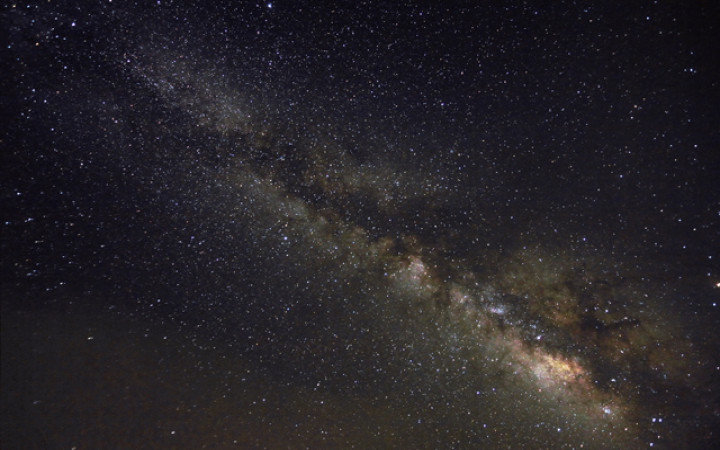Today’s Wonder of the Day was inspired by Nicole from AL. Nicole Wonders, “How do shooting stars start?” Thanks for WONDERing with us, Nicole!
Star light, star bright, first star I see tonight. I wish I may, I wish I might, have this wish I wish tonight. Have you ever said those words while staring at the night sky?
Some people believe that if you utter those words after seeing a shooting star, your wish will come true. We're not sure about the power of shooting stars to make dreams come true, but we do find shooting stars fascinating!
Although planets and stars are the easiest things to see in the night sky, stars and planets aren't the only things floating around in space. At any moment there are bits of rocks floating around, too.
Some of these space rocks are as tiny as particles of dust, and some are as large as boulders! What does space dust have to do with shooting stars, you may WONDER? Well, a shooting star (or "falling star") has nothing to do with stars and everything to do with these little bits of rock.
Though they may appear to have the same enchanting glow as the stars we see twinkling in the night sky, shooting stars are actually small pieces of rock or dust, called meteoroids, hitting the Earth's atmosphere and burning up.
The brief and beautiful trail of light we see as a meteoroid streaks through the sky is called a meteor. Meteors are what people commonly refer to as shooting stars.
So isn't a burning rock falling through space dangerous? Not typically. Most meteoroids are only the size of a grain of sand and burn up before they ever reach the Earth.
Very rarely, a part of a meteoroid may survive the journey through our atmosphere and make its way to Earth's surface. When that happens, the piece of rock that lands on Earth is called a meteorite.
A few times a year, Earth passes through a trail of dust and debris a comet has left behind while orbiting the sun. This comet trail is called a meteor stream.
When Earth passes through a dusty meteor stream, hundreds or thousands of meteors are born. This is called a meteor shower.
Keep an eye on the sky. The next time you see a shooting star, you can exclaim "That rocks!" and really mean it.




